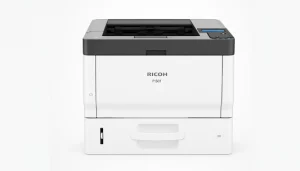Digital Transformation in German SMEs: How DMS Systems Increase Efficiency and Reduce Costs
Digital transformation is an essential part of the modern business world, especially in German SMEs. Companies are under pressure to optimize their processes and increase efficiency in order to remain competitive. A key factor in this process is the use of document management systems (DMS), which not only increase efficiency but also enable significant cost savings. In this article, we will look at the role of DMS in digital transformation and the potential that these systems offer in the context of German SMEs. By integrating DMS efficiency, companies can not only optimize their internal processes but also improve their customer service.
What are DMS and their importance for SMEs
A document management system (DMS) is a system for capturing, storing, managing and providing documents. DMS are able to digitally manage a wide range of documents - from invoices to contracts to internal protocols. This leads to better organization, faster access and a significant reduction in paper consumption.
In German medium-sized businesses, which are often characterized by poorly standardized processes and paper-based documentation, DMS can revolutionize operational processes. The following advantages can be seen through the use of DMS:
- Increased efficiency: Faster access to documents and information.
- cost reduction: Reduction of printing and archiving costs.
- Improved security: Digital documents are better protected against loss and misuse.
- Legal Compliance: Ensuring compliance with data protection regulations.
These factors make DMS an indispensable tool for companies that want to assert themselves in the digital age.
The Role of Digital Transformation in SMEs
Digital transformation involves a fundamental change in how companies interact and operate in the digital world. For SMEs, this often means replacing traditional business practices with innovative technologies. A key aspect of this transformation is the use of efficient document processing procedures, which is made possible by DMS. In particular, SMEs should consider the following steps in their digital transformation strategy:
- Analysis of existing processes: Identifying weak points and potential for improvement.
- Selecting a suitable DMS: Consideration of individual needs and integration into existing systems.
- Training of employees: Ensuring that all employees are familiar with the new system.
These steps are crucial to achieving the greatest possible benefit from DMS efficiency improvements.
Advantages of DMS for German SMEs
The implementation of a DMS brings several advantages that are particularly important for German medium-sized companies:
- Reduction of processing times: Automated workflows allow documents to be processed and approved more quickly. Statistics show that companies without a DMS spend an average of 25-30% of their time searching for documents.
- Cost savings: Digital archiving not only saves space, but also costs for printing and storage. Companies with DMS report savings of up to 40%. This is supported by the lower requirements for office space and reduced material costs.
- Environmental friendliness: The reduction of paper consumption and the associated emissions promotes a sustainable corporate policy.
The advantages of DMS make a convincing argument for the digital transformation of German medium-sized companies.


DMS systems in comparison: Which solutions are suitable for medium-sized businesses?
There are numerous DMS solutions on the market, each with its own features and benefits. When choosing a DMS, it is important to consider the specific requirements of the company. The following providers have established themselves on the market:
- docuware: Offers comprehensive solutions for document management and process automation.
- agiloft: Flexible DMS solutions with a focus on adaptability.
- OpenText: A robust platform for large data volumes and compliance requirements.
A detailed assessment of the systematic advantages and disadvantages of each solution is essential. For further insights, you can also visit the article on digitalization in medium-sized businesses.
Real-World Examples: Successful DMS Implementations
There are numerous success stories of German medium-sized companies that have increased their efficiency and reduced costs with the help of DMS. For example:
- Company A: A small company in the mechanical engineering industry was able to reduce its processing times by 50% after implementing a DMS. This led to a reduction in operating costs of 25%.
- Company B: A medium-sized service provider reported savings of 30% in archiving costs after switching to a digital system.
These examples clearly show that DMS not only offer theoretical advantages, but can also make a concrete contribution to improving company processes.
Technological Trends in Document Management
When considering digital transformation, companies must also consider the latest technological trends in document management:
- Artificial intelligence: AI-supported systems can optimize document processing through automatic classification and intelligent search.
- Cloud solutions: Cloud-based DMS offer flexibility and expanded access options for mobile and remote employees.
- Integration with other tools: The seamless connection of DMS with CRM and ERP systems maximizes efficiency.
Taking these trends into account can help medium-sized companies make their DMS more efficient and maximize the benefits of DMS efficiency improvements.
Conclusion
Digital transformation is inevitable and DMS play a central role in efficiency and cost savings in German SMEs. Companies that invest in DMS are better equipped to meet the challenges of the digital future. Selecting the right DMS and carefully planning the implementation are crucial to maximizing the benefits. Those who integrate the systems efficiently into their business processes can not only enjoy cost reductions, but also significantly improved customer service and optimized internal processes.
For example, some companies use multifunction printers such as the Ricoh IM C2010Ato effectively integrate their printing and scanning functions and thus support the digital workflow. The use of original consumables such as the Ricoh Toner MP C3502 ensures the quality of the documents and reduces operating costs in the long term.
By combining all of the above factors, German medium-sized companies are able to fully exploit the potential of digital transformation and DMS.














